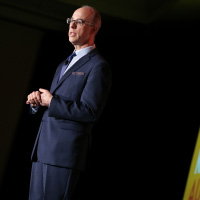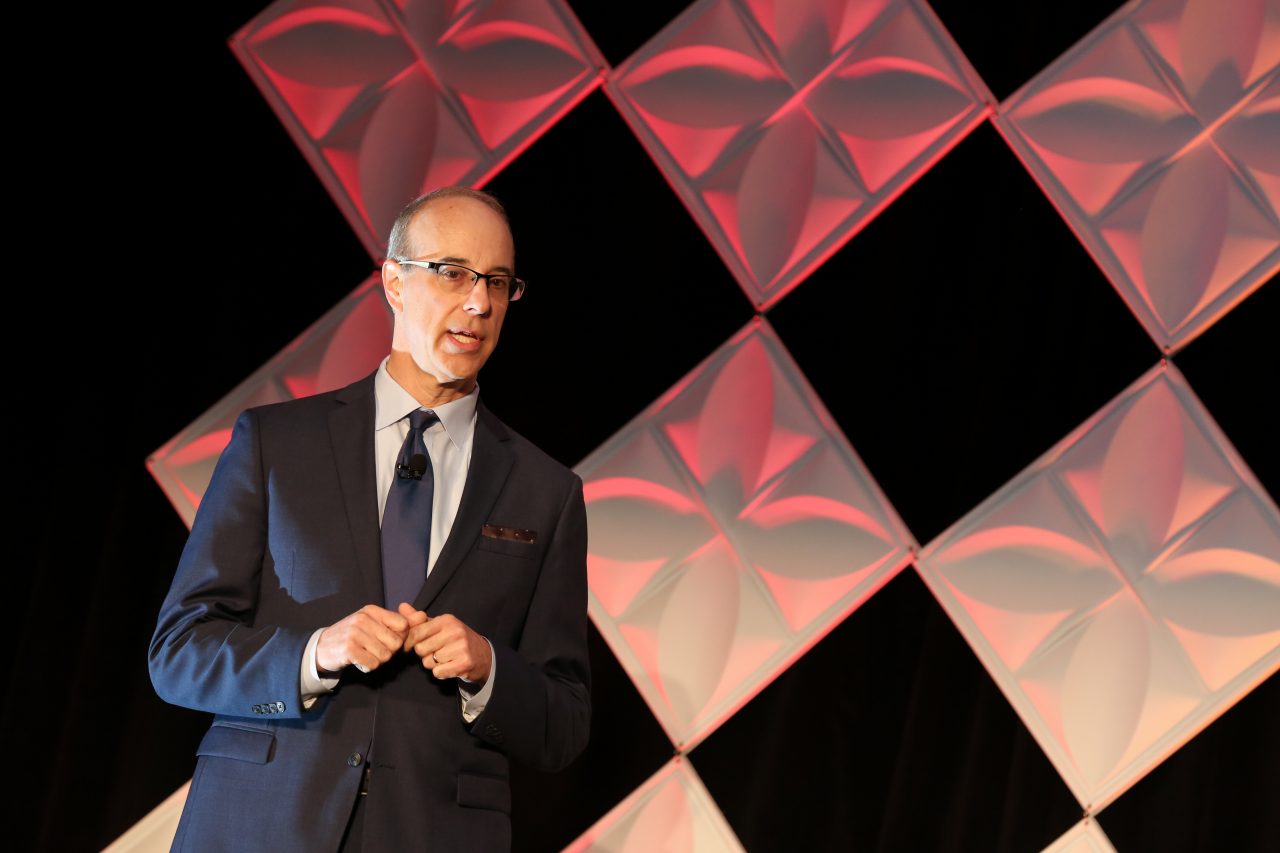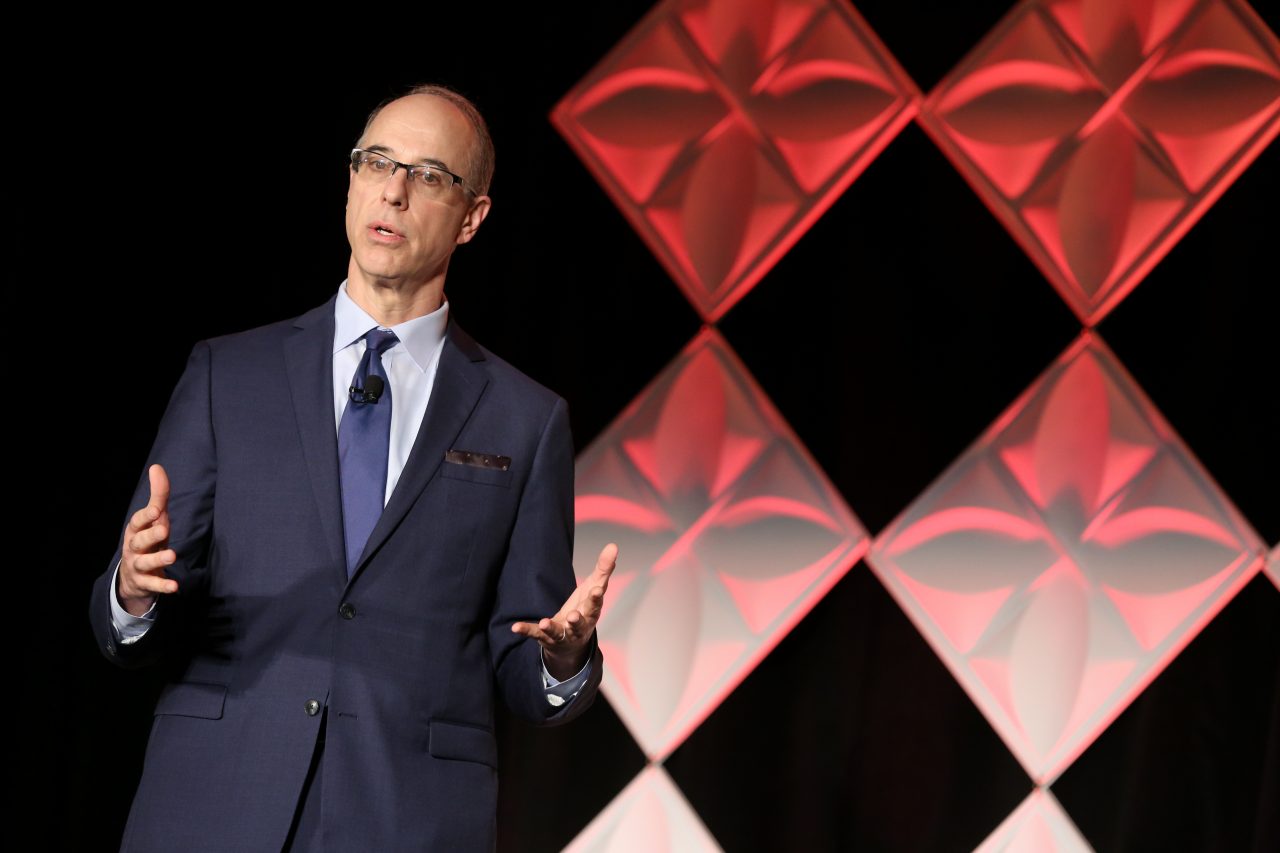
Greg Richmond, NACSA President and CEO opened our conference in Orlando with a speech on the importance of protecting charter school autonomy. Below is the transcript of his speech, as presented on October 23, 2018.
Good morning! I’m Greg Richmond, NACSA President & CEO. On behalf of our board of directors and entire team, welcome to the 2018 NACSA Leadership Conference!
We’re so glad to see you here in Orlando because this is our favorite time of year!
We’re grateful that you’ve chosen to be with your colleagues from across the nation and I hope you’re excited to embark on a few days of valuable networking, learning, and maybe even some “a-ha!” moments.
We’re also grateful to our sponsors because they make it possible for us to give you the conference you deserve. Thanks to the Walton Family Foundation, National Charter Schools Institute, Highmark School Development, EPR Properties, Raza Development Fund, and the National Center for Special Education in Charter Schools. Their sponsorship helped us bring you some phenomenal speakers, like Civil rights leaders Sylvia Mendez and Terrence Roberts, tomorrow, and Sekou Andrews, the award-winning poetic voice you’ll hear next.
This is our 18th NACSA conference! We gather every year to greet each other, to collect resources, and to push ourselves to be good authorizers. What is good authorizing? Because there are millions of children in this country who do not have the opportunity to attend a good school, at NACSA, we believe that good authorizing is anything that leads to more good schools for children. When WE are good authorizers, we help create great schools that our children need.
I’d like to start this year’s conference by sharing two new things with you.
First, hot-off-the-press, you’ll find the updated Principles & Standards for Quality Charter School Authorizing on your seat this morning. This is the standard for our profession, and many of you tell us it’s your go-to guide.
The 2018 version is the first significant revision in a few years. Many of you provided input to make sure it represents today’s best practices. We’ve added things we learned from our Quality Practice research project. And we’ve strengthened the attention to access and equity for students. We keep learning, and we’re grateful for your partnership. These standards are by you and for you.
Second, I’ve been working in charter school authorizing for 22 years and my mother still doesn’t understand what I do. More importantly, an awful lot of people with the power to influence authorizing don’t really understand it. So we at NACSA decided to do something about this. Here’s a sneak peek.
When this video goes live next month, it will kick off a campaign to increase the visibility of authorizing. We hope you’ll share these videos with your board members, lawmakers, colleagues, and maybe even your mom. Watch for this release next month.
Our goal with this video was to convey, as simply as possible, the three pillars that we uphold: access, autonomy, and accountability.

If you’ve been doing this work for a while, you know that we all spend a lot of time and energy on accountability.
But, the entire charter promise breaks down if we don’t spend as much time protecting school autonomy.
That may be the LAST thing you expected to hear from me this morning: that we should spend as much time protecting school autonomy as we do ensuring accountability.
I think it’s time to expect more from ourselves on autonomy. At NACSA, we’re spending more time thinking about it, how it creates great schools, and how authorizers ensure schools have it.
When we asked leaders of high-performing charter schools about their experiences with their authorizers around autonomy, it wasn’t exactly a love fest, which probably isn’t a surprise to anyone in this room. But these school leaders have legitimate criticisms that we should consider. Schools understand that authorizers have to make choices about when to get involved and when to not. But they feel that more often than not, authorizers choose more paperwork, more regulations, and more compliance activities that don’t benefit anyone.
Of course, authorizers have their own concerns. You want to protect autonomy and support innovation. You want to take calculated risks and allow charters to try a different way, a better way. But you face also pressures: inertia, tradition, sometimes even fear. You suffer under outdated laws. You fight against knee-jerk reactions from those who say “charter schools can’t do that” or “charter schools have to do this.”
So where is this all getting us? Are our children getting the great schools they need?
Two years ago, from the stage of the National Charter School Conference, Betsy DeVos criticized the existence of 500-page charter school applications. Two weeks ago, the director of a state charter school association told me about 1,500-page charter school applications in her state.
Now, I don’t know any authorizer who requires 1,500 pages, but charter school applicants assert that we are asking more and more questions, demanding more and more information, most of which never even gets read.
Is this really getting us the new and innovative schools our children need? Or is it scaring good people and good ideas away?
Are you getting the schools you want for your community?
This is a moment for us to expect more of ourselves. Let’s resist these pressures to require more, to regulate more. Let’s focus on making sure schools have the freedom they need to do what’s best for kids.
I faced pressures like these many times when I led the charter schools office at the Chicago Public Schools.
One year, we received an application for a Young Women’s Leadership Charter School. An all-girls public school was a radical idea at the time, and a good one! A visionary group of businesswomen, civic leaders, and philanthropists had decided to do something about the under-representation of women in STEM fields.
The proposal faced immediate legal threats, alleging discrimination against boys. State and federal laws were unclear on the legality of single-gender schools. It would’ve been very easy for us to interpret the law as prohibiting such a school.
Instead, we were intrigued by the idea. After all, many middle- and upper-income families send their children to private and parochial single-gender schools. Those students do well. Why shouldn’t low-income girls have the same opportunity?
But there were serious and potentially expensive litigation risks, and lots of pressure put on us to deny the proposal.
We withstood those pressures and approved the school.
Today, it’s still the only all-girls public school in Chicago. For six years running, 100 percent of its seniors are graduating and going to college. I’m proud of that judgment call, and the team of us who saw the potential risks pale in comparison to the potential benefits to students. I’m proud of that school and of their graduates. I’m proud that we decided to protect their autonomy!
That was a high-profile, high-stakes decision. But in reality, over-regulation tends to sneak in gradually, and less dramatically, on things like Title 1 funding, special education services, attendance reports, food service, student discipline, quarterly financial reports, and audits.

Here, too, we must protect school autonomy. Your own colleagues are leading the way!
- You’re fighting the dreaded compliance creep by making smart choices about what you really need. You’re even standing up to other regulatory bodies when they ask for more than what is required by law.
- Instead of standardized procedures across all of your schools, you’re differentiating. You’re offering more leeway for experienced operators and over time. Once a school has a great track record, you can be more flexible.
- You resist the ‘one more question’ syndrome. When you visit a school or review materials, before you ask for more information, you check yourselves: is this required, is it important, is it necessary?
These are small moves that make a big difference.
As authorizers, we choose when to get involved and when to get out of the way.
You may get pressured by your board or others to do something you know infringes on school autonomy. I know I was. When we withstand those pressures, students end up as the winners. That’s what we want!
This week at our conference and in the months ahead, ask yourself: What am I already doing to protect school autonomy? What could I do better?
There are still millions of children that are not attending a good school that prepares them for success in life. We need more schools to develop innovative models, like Young Women’s. We need more schools focused on what their students need, not on unnecessary reporting requirements. We need more authorizers to balance school autonomy with student and public interests.
This week and in the months ahead, let’s expect more of ourselves. Let’s spend as much of our time on autonomy as we do on accountability.
And when we do, we will help create the great schools our children need.
Thank you very much.


